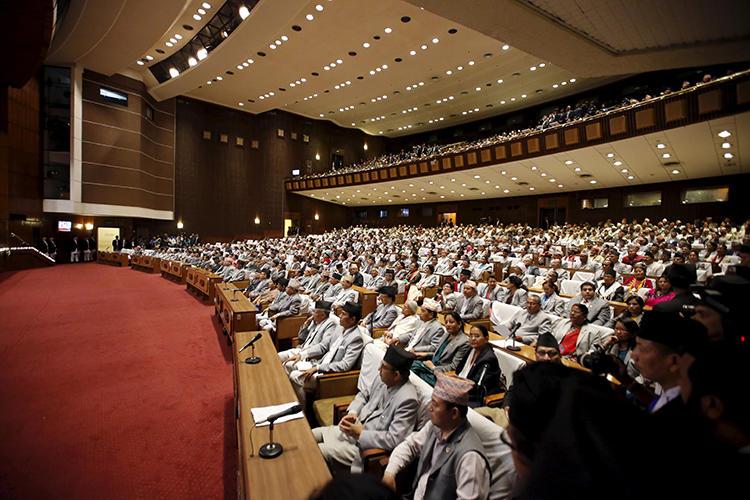

United States aid grant MCC (Millennium Challenge Corporation) compact has been approved by the Parliament with majority in favor of it.
Amid criticisms from millions of Nepali citizens, MCC has been approved after several long discussion sessions in the House of Representatives. Many Party leaders have been accused by citizens and other political leaders of changing their views on MCC whenever it is in favor of their agendas.
The government had earlier decided to pass an 11-point explanatory declaration on the Millennium Challenge Corporation Compact (MCC) grant from the United States.
Government spokesperson Gyanendra Bahadur Karki said that the decision was taken at a meeting of the Council of Ministers held at the International Conference Center, New Baneshwor some time ago. The first meeting of the House of Representatives today had a theoretical discussion on MCC. The second meeting to be held this evening is scheduled to discuss the issue clause by clause.
Such were the explanatory declaration before the approval of MCC:
1. In relation to the Compact, Nepal declares that it does not consider itself to be bound by any strategic, military, or security alliance, including the Indo-Pacific Strategy of the United States of America.
2. In relation to Article 2.7, Article 5.2 (b) (3), Article 5.2 (b) (4) of the Compact, Nepal understands that the purpose of the said provisions of the Compact applies only to the use of MCC grants. It declares that Nepal is not obliged to comply with existing or future US laws or policies for any purpose other than the use of grants.
3. In relation to Article 3.2 (b) of the Compact, the Millennium Challenge Account Nepal Development Committee (MCA-Nepal) declares that the activities to be conducted will be regulated by the law of Nepal and in accordance with the Compact.
4. In relation to Article 3.2 (f) of the Compact, MCC declares that the intellectual property in accordance with Article 3.2 (f) of the Compact shall not be owned and that all intellectual property created under the Compact Program shall be owned and utilized by Nepal.
5. In relation to Article 3.5 of the Compact, the implementation letters declare that they will be implemented within the scope of the Compact.
6. In relation to Article 3.8 (a) of the Compact, MCA-Nepal declares that all activities and funds will be audited by the Auditor-General in accordance with the prevailing Nepali law.
7. In relation to Article 5.1 (a) of the Compact, Nepal declares that it has the right to reject the Compact or MCC grant amount by giving thirty (30) days prior written notice if the activities/programs under the Compact violate the laws or policies of Nepal.
8. In relation to Article 5.5 (c) of the Compact, Nepal declares that the provisions that are said to be applicable even after the termination, suspension, or termination of the Compact are relevant to the extent of evaluation, audit, and tax variance of the projects under the Compact, including the use of the remaining MCC grant money.
9. Regarding Article 7.1 of the Compact, the Constitution of Nepal declares that it shall be above the Compact. At the same time, it declares that the programs/projects under the compact will be implemented in accordance with the laws of Nepal and the compact itself.
10. In relation to Article 8.1 of the Compact, it declares that all movable and immovable properties, including electricity transmission projects, lands related to the project will be owned by the Government of Nepal or the bodies of the Government of Nepal.
11. Regarding the letter received by Nepal from Millennium Challenge Corporation on 8 September 2021, Nepal understands that the reply of Millennium Challenge Corporation in the letter will help in the interpretation and implementation of the Compact.